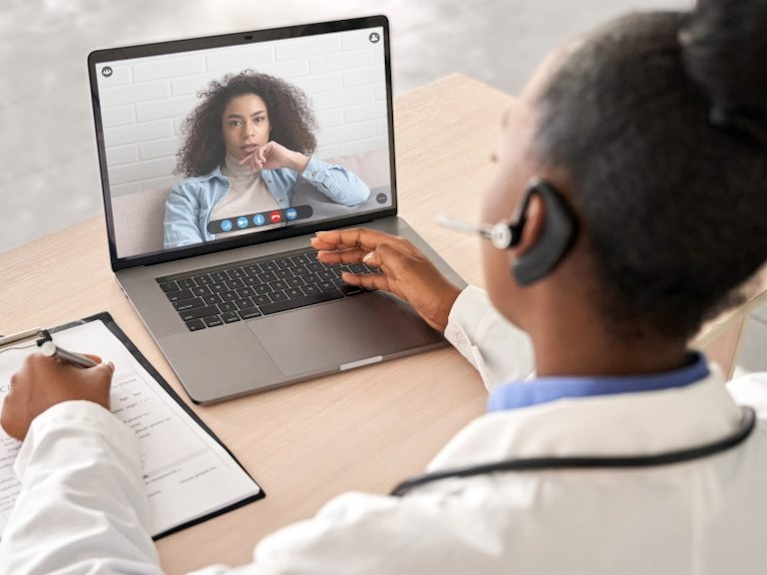The rapid adoption of telehealth during the COVID-19 pandemic has revolutionized healthcare delivery. Patients and providers alike have embraced the convenience, accessibility and safety of virtual care.
However, the shift to telehealth has also raised important concerns about patient privacy and data security.
How can healthcare organizations ensure that sensitive health information shared during telehealth visits remains confidential and protected?
Cloud-based phone systems play a crucial role in enabling secure and HIPAA-compliant telehealth communications. By leveraging advanced encryption, access controls, and other security measures, cloud phone solutions allow healthcare providers to safeguard patient privacy while delivering high-quality virtual care.
Let’s explore the key benefits and best practices for using cloud phone systems in telehealth.
Data Security Measures
One of the primary advantages of cloud phone systems is their robust data security capabilities. Top cloud communication providers implement multiple layers of protection to prevent unauthorized access to patient information:
- End-to-end encryption. All voice and video calls, as well as text messages, are encrypted from end to end. This means data is indecipherable as it travels between the patient’s and provider’s devices over the internet.
- Secure data centers. Cloud providers host their communication infrastructure in highly secure, HIPAA-compliant data centers. Strict physical and digital access controls protect against breaches and ensure data remains private.
- Regular security audits. Reputable cloud phone providers conduct frequent security audits and vulnerability assessments to proactively identify and address any potential risks.
By partnering with a cloud communications provider that prioritizes data security, healthcare organizations can have confidence that patient information shared during telehealth visits is well-protected. Secure cloud infrastructure provides a solid foundation for HIPAA-compliant virtual care delivery.
Cloud Phone Benefits for Telehealth
In addition to strong security, cloud phone systems offer several other key benefits for telehealth providers:
- Flexibility and scalability. Cloud-based systems allow healthcare organizations to quickly deploy and scale telehealth services as needed. New phone lines can be added in minutes to accommodate spikes in patient demand.
- Seamless EHR integration. Many cloud phone solutions integrate directly with electronic health record (EHR) platforms. This enables providers to easily access patient data during telehealth visits and automatically log encounter details in the EHR.
- Improved patient experience. Cloud phone systems support high-quality voice and video calls, reducing technical issues that could disrupt the patient-provider interaction. Features like virtual waiting rooms and appointment reminders further enhance the patient experience.
- Cost efficiency. By eliminating the need for on-premises hardware, cloud communications can significantly reduce upfront costs and ongoing maintenance expenses for healthcare organizations.
The flexibility, interoperability and cost-effectiveness of cloud phone systems make them an attractive option for healthcare providers looking to implement or expand telehealth services. When combined with strong security measures, cloud solutions provide a win-win for telehealth adoption.
Addressing Patient Privacy Concerns
Despite the security advantages of cloud phone systems, some patients may still have concerns about the privacy of their health information during telehealth visits. Healthcare providers can take proactive steps to build patient trust and ensure a secure telehealth experience:
- Provide patient education. Clearly explain to patients how their data will be protected during virtual visits. Share information about the specific security measures in place, such as encryption and access controls.
- Obtain informed consent. Prior to telehealth visits, obtain patients’ informed consent regarding the use of cloud communications technology. Document that patients understand and accept any potential privacy risks.
- Conduct telehealth in private spaces. When delivering care virtually, providers should find a quiet, private room to ensure confidentiality. Avoid conducting visits in public areas where others could overhear sensitive information.
- Use secure devices and networks. Provide staff with secure, encrypted devices to use for telehealth visits. Prohibit the use of unsecured public Wi-Fi networks which could enable snooping on patient data.
By educating patients, using secure technology, and following HIPAA best practices, healthcare providers can foster a culture of trust around telehealth. Patients who feel confident in providers’ commitment to privacy will be more likely to embrace virtual care.
Conclusion
As telehealth becomes a mainstream mode of healthcare delivery, patient privacy and data security must remain top priorities. Cloud phone systems equip healthcare organizations with the robust security capabilities and flexibility needed to provide secure, HIPAA-compliant virtual care.
By leveraging end-to-end encryption, secure infrastructure, and regular audits, cloud communications allow providers to safeguard sensitive patient data. The scalability, EHR integration and cost efficiency of cloud systems further streamline telehealth implementation.
When combined with patient education and privacy best practices, secure cloud phone systems establish a strong foundation for successful telehealth programs. Healthcare providers that invest in reliable, HIPAA-compliant cloud solutions will be well-positioned to meet patient demand for convenient, secure virtual care both now and in the future.
